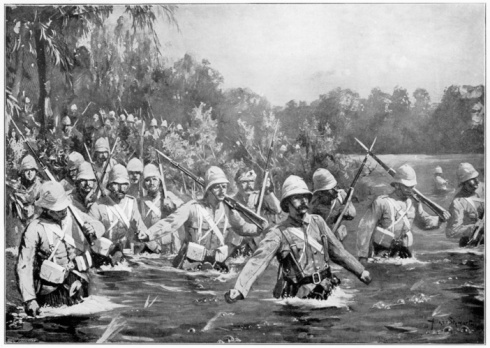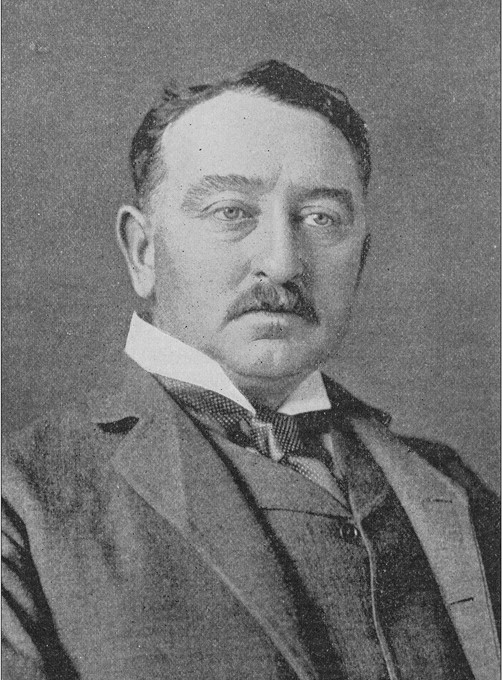This month in history: The beginning of the Second Boer War
On 11 October 1899 war was declared between the British Empire and the two Boer states, the South African Republic State (commonly referred to as the Transvaal) and the Orange Free. As part of our ‘This month in history’ series, we look at the start of the Second Boer War.

When did the Second Boer War begin?
The Second Boer War, also known as the Boer War, the Anglo-Boer War, or the South African War, began on 11 October 1899 when the South African Republic (the Transvaal), together with the Orange Free State, declared war on the British Empire.
It started after Britain rejected the Transvaal ultimatum, which demanded that all British troops on the borders withdrew and troops bound for the South African Republic by ship not disembark.
What was the cause of the Second Boer War?
Though the Second Boer War officially began when the British rejected the Transvaal ultimatum, the origins of the war were long and complex, stemming from more than a century of conflict between the Boers and Britain.
Politics
After the First Boer War the British government had not given up its aim of unifying South Africa under Imperial British rule. However, the two Boer republics, led by Paul Kruger, still wanted to remain independent.
Cecil John Rhodes, a Britain who made his fortune in South Africa through diamond mining, became the Prime Minister of the Cape Colony in 1890. Located in modern day southern South Africa, the Cape Colony had been under permanent British occupation since the Battle of Blaauwberg in 1806, and Rhodes was a supporter of the British imperial plan to unite the Transvaal under British rule.
The Witwatersrand Gold Rush and Uitlanders
Arguably the most significance event leading to the Second Boer War was the discovery of the Witwatersrand gold mines in 1886. Located in the Witwatersrand basin near Johannesburg, the discovery quickly bought riches to the region, with the South African Republic becoming the single biggest gold producer in the world and the richest country in southern Africa.
Naturally the new-found gold attracted the attention of foreigners, including from British expansionists such as Cecil Rhodes. Prospectors and workers streamed to South Africa from all over the world, though predominantly Britain, in search of fortune. The migrants became locally known as Uitlanders, which translates as "foreigners" in Afrikaans.
The influx of mainly British migrant workers led to political tension. As well as disputes with the British over who controlled the gold mining industry, then President of the South African Republic, Paul Kruger, worried that foreigners would soon outnumber the Boers and the British Empire would use any numerical advantage to unify South Africa under British rule. As a result, the rights of the Uitlanders became politically significant.
Joseph Chamberlain, the British Colonial Secretary demanded Kruger give full voting rights to the Uitlanders who lived in the Transvaal. However, in order to maintain control of the mines and the growth of the immigrant population, the Transvaal government restricted the Uitlanders’ voting rights; only those who had been in the country for 14 years or more and who were over 40 years of age could vote. It was called the Uitlander Franchise and caused further strain between the Transvaal and British governments.

The Jameson Raid
The governments of the Transvaal began to arm themselves following the Jameson Raid, which took place over the New Year weekend in 1895 and 1896. Led by Cecil Rhodes' lieutenant and British colonial administrator, Leander Starr Jameson, the Jameson Raid was a failed attempt to trigger an uprising in the Transvaal Republic with the help of the English-speaking Uitlanders in order to establish a pro-British government.
The raid itself was a disaster for Britain; Jameson’s ‘troops’ were easily rounded up by Boer Commandos on 2 January 1896 at Doornkop near Krugersdorp and the Uitlander leaders who had been part of the plot were put to trial. Rhodes was forced to resign as Prime Minister of the Cape Colony and Britain’s policy in South Africa was in ruins.
When did the Second Boer War end?
During the Second Boer War, the British Army was reinforced by volunteer contingents from Canada, Australia, New Zealand, the Cape Colony and Natal, greatly exceeding Boer Commando numbers. And by 1902, Britain’s controversial ‘scorched-earth policy’ proved successful, with Boer forces surrendering on Saturday 31 May 1902 after accepting the terms of the Treaty of Vereeniging.
The Orange Free State and the Transvaal collapsed and were to be administered by the British in accordance with the Treaty. In 1910 both former republics were incorporated into the Union of South Africa, as part of the British Empire.
Around 28,000 soldiers from both sides died in the Second Boer War. Over 46,000 civilians also died, including 26,000 Boers in concentration camps and over 20,000 Africans of the 115,000 interned in separate concentration camps.
A report on the surrender of arms in Western Transvaal was published in The Gazette in July 1902 (Gazette issue 27459). You can see a full list of despatches and awards from the Second Boer War and also read about the Battle of Elandslaagte in The Gazette.
Image: Getty Images
Publication date: 6 October 2020
Any opinion expressed in this article is that of the author and the author alone, and does not necessarily represent that of The Gazette.
